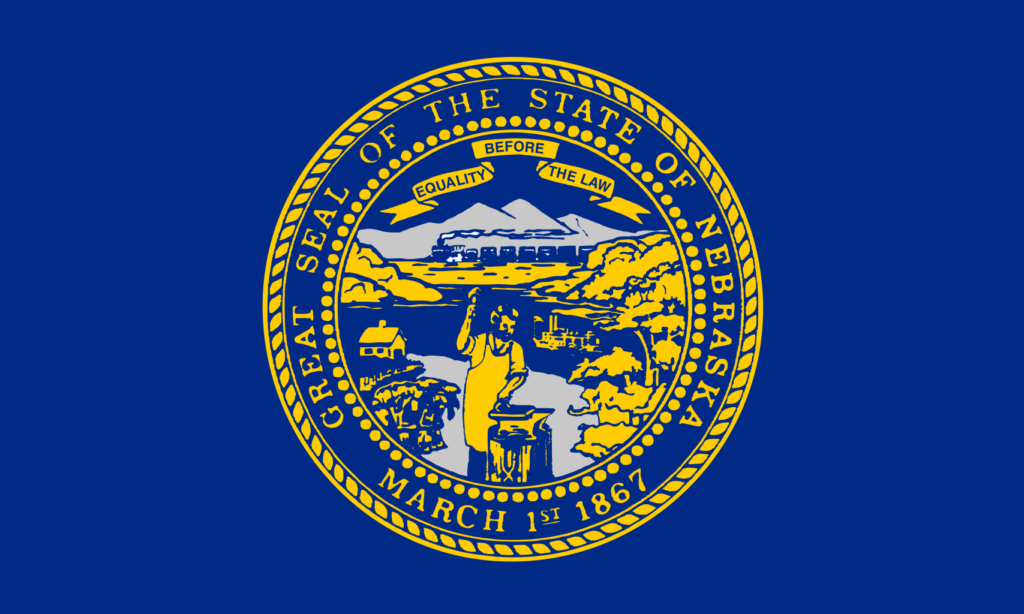
Our Nebraska predominant use studies allow for the electricity, natural gas and other utility sales tax exemptions on a per meter basis. Our predominant use studies will account for all power draw including the exempt and non-exempt usage. Our utility use studies are also balanced with a 12-month history and certified by our PE (professional engineer) to ensure the studies are not biased and are accurate to within .5%.
In addition to removing sales taxes going forward, we can recover up to the statute of limitations (36 months in Nebraska) of sales taxes paid in error for qualified meters and other utilities including propane, fuel, etc..
Our technician, professional engineer, and processors will reduce your work down to providing us copies of utility invoices. We also defend our utility use studies with the State, when needed, at no additional cost to ensure you get to keep your utility sales tax exemption and refund. Contact us for a no-obligation consultation at 346-241-0100 or 844-767-0037 with any questions.
- Predominant use (51% or more of utility used in manufacturing allows for 100% exemption).
Refunds and exemptions for water used in all or part of manufacturing and/or processing also qualifies.
Best proof of eligibility is an engineer certified predominant use study to avoid the utility sales tax liability and penalties up to 10 times the sales tax where taxable meters are exempted.
http://www.revenue.state.ne.us/
REG-1-089, Energy Source Utility Exemption
|
089.01 The sale, purchase, use, or other consumption of electricity, coal, gas, fuel oil, diesel fuel, tractor fuel, gasoline, coke, nuclear fuel, butane, and compressed fuel that includes compressed natural gas and liquefied petroleum gas (propane) may be exempt from the sales and use tax.
089.01A If more than 50% of the amount purchased is used or directly consumed in processing, manufacturing, refining, generation of electricity, irrigation or farming, or by any hospital the purchase of the fuels listed above is exempt.
089.02 The following definitions and guidelines are to be applied in determining the percentage of exempt energy consumption:
089.02A Processing or manufacturing is defined as an action or series of actions performed upon tangible personal property, either by hand or machine, which results in that tangible personal property being reduced or transformed into a different state, quality, form, property, or thing. Processing includes grain drying and feed grinding in a commercial facility, and the freezing of food products. Processing or manufacturing does not include repairing property, building erection, cold storage of food products, or the preparation of food for immediate consumption.
089.02B Refining is defined as the action or process of removing impurities from crude or impure materials, such as glass, metal, sugar, and petroleum products. Refining includes the extraction of gas and petroleum products.
089.02C Irrigation is defined as the application of water to lands for the raising of agricultural crops.
089.02D Farming is commercial agriculture, which is the business of producing food products, or other useful and valuable crops, or raising animal life. The crops or animal life can either be sold or used by the grower. Commercial agriculture includes commercial production in greenhouses, nurseries, tree farms, sod farms, and feedlots. Commercial agriculture does not include storage of crops off the farm or in commercial elevators, or animal life in stockyards or sale barns. Energy consumed by on-farm grain storage and processing is considered to be consumed in farming.
089.02E Gas is defined as those gases that are burned for energy or oxygen used in welding or cutting metals.
0089.03 When determining the percent of exempt use, energy consumed directly in processing, manufacturing, refining, generation of electricity, irrigation, or farming, as defined in this regulation, is used in a qualified use. Energy consumed in heating, cooling, or lighting that portion of the facility directly used in processing, manufacturing, refining, irrigation, or farming, is considered to be for a qualified use. If the purchaser properly determines that more than 50 percent of the energy charge through a single meter is consumed for a qualified use, the entire billing for that meter is exempt from the sales and use tax. However, if the purchaser determines that 50 percent or less of the energy charge through a single meter is consumed for a qualified use, he or she cannot issue an exempt certificate on that meter billing. The entire charge (qualified and nonqualified use) is taxable.
089.03A For purposes of determining the usage percent, a one-year period of consumption will be required. New customers may project their anticipated consumption.
089.03B The use of separate energy meters is acceptable for establishing exemptions within a single facility; however, the taxability of the entire billing for that meter is dependent upon the total energy usage through that meter.
089.04 Fuels commonly used to propel motor vehicles, such as fuel oil, diesel fuel, tractor fuel, and propane are subject to either diesel or compressed fuel tax or sales tax, depending upon their usage.
089.04A At the time fuel oil, diesel fuel, tractor fuel, or propane is placed in a bulk tank which is designed or equipped to fuel vehicles, fuel oil, diesel fuel, tractor fuel, or propane is taxed or exempted under the diesel or compressed fuel rules.
089.04B Fuel oil, diesel fuel, tractor fuel, or propane which is exempt from the sales tax at the time of purchase becomes subject to the consumer’s use tax only when consumed for purposes other than for irrigation of crops or to propel any vehicle such as a tractor, fork lift, grader, or bulldozer. This fuel may qualify for exemption under paragraph 089.01A.
089.04C All fuel oil, diesel fuel, tractor fuel, or propane placed in a bulk tank which is not designed to fuel motor vehicles, is taxed or exempted under the sales and use tax regulations.
089.05 The procedure for claiming an exemption from sales and use tax except those claims set forth in sections 089.05A and 089.05B must be supported by properly completing the Nebraska Energy Source Exempt Sale Certificate, Form 13E.
089.05A The exempt sale of diesel or compressed fuel placed in a bulk tank designed or equipped to fuel vehicles does not need to be supported by a certificate of exemption when the quantity purchased and the other records maintained support such exempt sale.
089.05B Diesel fuel that is placed into a supply tank connected to stationary equipment used to irrigate crops is exempt from sales and use tax. Such sales do not need to be supported by a certificate of exemption when the quantity purchased and the other records maintained by the seller support such exempt sale.
089.05C Compressed natural gas or liquefied petroleum gas (propane) that is placed into a supply tank connected to stationary equipment used to irrigate crops is taxable unless the purchaser issues to the seller a Nebraska Energy Source Exempt Sale Certificate, Form 13E.
089.05D An electricity or gas services public utility with a formal classification of usage that reasonably reflects the actual use by the customer, and such usage is for an exempt purpose, does not need to accept an exempt sale certificate from each customer account in the classification. This provision is not to be construed as relieving the consumer of liability for the applicable tax on any such usage.
089.05E Persons furnishing electricity and gas services as public utilities may elect to assume or absorb the applicable sales tax or may elect to pass the tax to the final consumer in the same manner as all other retailers. If the vendor elects to assume or absorb the tax, the utility vendor will remit the applicable tax directly to the Department of Revenue based upon the total charges made to the ultimate consumer. All billings to the ultimate consumer shall contain a statement to the effect that no tax is being collected for customers who are exempt or that the tax has been assumed or absorbed by the vendor for taxable customers.
089.05F In the event the vendor of utility services elects to pass the applicable tax to the final customer, the tax shall be separately stated on all billings; provided, that in lieu of separately stating the tax, the Department of Revenue hereby authorizes the vendor to include a statement on all billings to the effect that the total charge includes sales tax. The gross receipts will be factored to determine the proper amount of tax.
